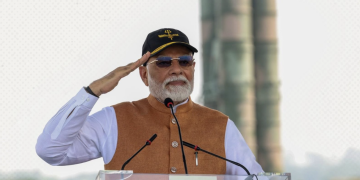Reference is drawn to your editorial “Religious Freedom” (May 13) and Press Freedom (May17) and to editorials in general. Editorials or opinions are a required part of any publication; they are positions of publications. The public looks forward for them. Governments and politicians tend to read them but are not necessarily influenced by the messages conveyed or advice offered. The politicians and governments are not easily swayed by media positions and public opinions even those that are very neutral, objective, fair, and balanced. Very few leaders respond positively (implement suggestions) to media or public opinions. Politicians do what is in their own best personal interests as opposed to the people’s interests. Thus, they tend to ignore opinions.
Your recent editorials on freedom of press, freedom of religion and Baby Skello, among others, are welcomed. Those on religious tolerance and Skello are very critical analyses, informed and well argued, compelling perspectives on important topics, of which government should not ignore. Several editorials are well written, assailing this and other governments for their policy of funding, supporting, and cheering what passes as culture (entertainment) that degrades females and society in general. Skello’s is blasphemous disrespectful of Hindu Goddesses. While government has not funded Skello, governments have been known to support Skello like songs and programs amidst complaints from the media and the public. There should be no space for lyrics that attack faiths.
Skello’s song lewd comments about Goddess Lakshmi is very provocative, disrespecting Hindus for whom the Goddess is very important. There have been a number of attacks on Hindus and Hinduism. Hindus complain that their faith is increasingly being picked on for abuse, and that they are increasingly being marginalized in all spheres of activities including in business and in obtaining government funding for cultural activities. Skello, the producers, and others associated with that song must be held accountable. And government must take decisive measures to promote equality among the religions and adherents to the faiths. Hindus want equality like all other others who practice their religion.
Hindus note that Skello’s song is blasphemy against Hinduism. They feel that if the song was sung in another country or if he had attacked another faith, there would have been serious violence as witnessed in so many countries when people’s faiths were under assault. Lives were known to have been lost as a result of blasphemy. Apart from condemning the song, government and the police have not taken any action against the singer. If Christian and Islamic figures were sexually abused in the same manner as Goddess Lakshmi by Skello, rest assured that the churches and Islamic leaders would be up in arms. Hindus and their leaders have responded to the abuse of Goddess Lakshmi very passively. Their representatives and parties in parliament have not done much better. The matter was not raised in parliament in a universal condemnation of the lyrics of the song. There is no outrage in parliament. There has not been universal condemnation from non-Hindu organizations, hinting at religious fissures in society.
Your editorials kn above topics and others are welcomed. But do various governments and their agents understand the role of editorial Does government pay heed to public opinion or to editorials and commentaries (letters) in the media? Cheddi Jagan was concerned about the opinion of the public and responded to their views. David Granger buckled under public pressure, from media opinions, and released the contract that was signed between government and Exxon. President Irfaan acted amidst media and political pressure when one of our diplomats in an important country violated protocols, leading to his resignation or recall. There have not been many other examples of government responding positively to public opinion or paying heed to editorials and op ed commentaries in any papers. In the USA, Canada, UK, and other developed democracies, governments have been known to be very responsive to commentaries and editorials. In the third world, as is the case in Guyana, leaders are hardly responsive to opinions in the media.
Editorials (perspectives or stances of the publication, not a writer or writers) are written with the objective of shaping and or influencing public opinion and guiding discourses on a particular topic or issue and ultimately for policymakers to respond accordingly. The objective is to alter policy.
Will government stop funding cultural programs that and individuals who debase society and that attack people’s faiths? Instead of funding programs and activities and or individuals who have been known to engage in programs that degrade society and faiths, government should fund organizations and individuals that produce uplifting programs. And how about mandatory lessons in schools (from primary thru secondary) on ethnic and religious tolerance and on understanding the diversity of our cultures as well as respecting same. In New York State schools, there have been mandatory lessons on cultural diversity, religious and ethnic tolerance, and on respect for the values of others.

































































